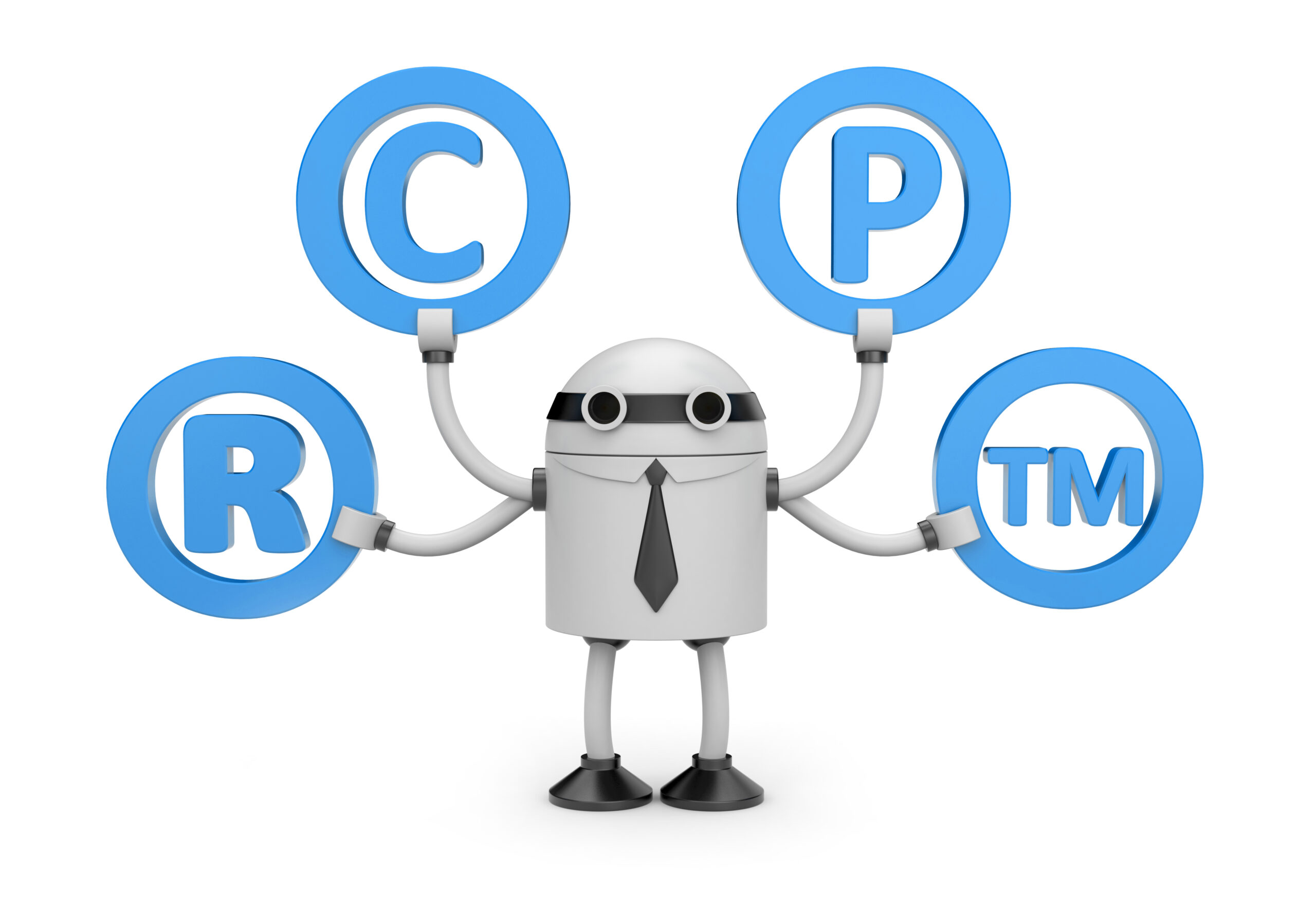“Discriminating in favor of only allowing human-generated works to receive protection would be a major disincentive to the use and development of AI in the creative process, and it would stymie the generation and dissemination of works.”
 Now is an exciting time in the world of artificial intelligence (AI) and intellectual property law. Academics have been interested in this field for a long time, and more narrowly in certain issues, like the legal status of works created by an AI in the absence of a traditional human author (AI-generated works). But AI-generated works have not traditionally been very interesting to lawyers, policymakers, or businesses, because while AI has been functionally making creative works for decades, the technology was never that commercially useful.
Now is an exciting time in the world of artificial intelligence (AI) and intellectual property law. Academics have been interested in this field for a long time, and more narrowly in certain issues, like the legal status of works created by an AI in the absence of a traditional human author (AI-generated works). But AI-generated works have not traditionally been very interesting to lawyers, policymakers, or businesses, because while AI has been functionally making creative works for decades, the technology was never that commercially useful.
In 2022, we saw a paradigm change in the development and adoption of generative models to make images and text at scale in ways that have value to people. Soon, I expect we will see something similar playing out with music and video. Longstanding, almost theoretical, legal issues have suddenly taken on an urgent practical importance. There is now litigation in multiple jurisdictions involving AI-generated works, AI and fair use, training data, text and data mining exceptions to copyright infringement, and whether AI can legally emulate an artists’ style.
DABUS Set the Stage
I’m spearheading one of those cases. In June 2022, we brought the first lawsuit against the U.S. Copyright Office for refusing to register a copyright in an AI-generated work created by an AI named “DABUS” owned and operated by Dr. Stephen Thaler.
Since 1973, the Copyright Office has had an official policy that human creativity is a fundamental requirement for copyright. Other jurisdictions do it differently. The United Kingdom, for example, passed a law in 1988 to provide for copyright protection in an AI-generated work. The producer of the work is deemed the author, and the work gets a shortened period of statutory protection.
But the Copyright Office policy has never been tested in court, probably because, again, these works have had limited commercial value. We argue that the policy is not supported by law, and that the Copyright Act does not require an author to be a human being. In fact, for more than a century, the United States has permitted corporate authors. The policy largely draws on case law in which courts considered creativity and put it in human-centric terms but did so merely based on the assumption that a creative actor will always be a human being. In fact, the cases the policy cites to are from the 19th century, before even the development of modern computers.
Now We Need to Act
We argue that protecting AI-generated output is consistent with the text and the purpose of the Copyright Act, which is to promote the generation and dissemination of new works. In the future, instead of music and movie studios using human creatives to do work, they are going to use generative AI systems in ways that benefit the public. Discriminating in favor of only allowing human-generated works to receive protection would be a major disincentive to the use and development of AI in the creative process, and it would stymie the generation and dissemination of works.
While the courts weigh in on whether current laws allow protection of AI-generated works, Congress, the Copyright Office and the U.S. Patent and Trademark Office (USPTO) have recently been thinking about what the law should be. Most recently, in February 2023, the USPTO put out a Request for Comments on AI and inventorship issues associated with patents. This conversation is overdue, given that the law is already in a position of playing catchup to AI. That is problematic because we want laws in place to guide technological development to promote social benefit, and laws that enable today’s investments in tomorrow’s innovation.
Image Source: Deposit Photos
Image ID: 52422769
Author: Pixelery.com

![[IPWatchdog Logo]](https://ipwatchdog.com/wp-content/themes/IPWatchdog%20-%202023/assets/images/temp/logo-small@2x.png)

![[Advertisement]](https://ipwatchdog.com/wp-content/uploads/2024/04/Artificial-Intelligence-2024-REPLAY-sidebar-700x500-corrected.jpg)
![[Advertisement]](https://ipwatchdog.com/wp-content/uploads/2024/04/UnitedLex-May-2-2024-sidebar-700x500-1.jpg)
![[Advertisement]](https://ipwatchdog.com/wp-content/uploads/2024/04/Patent-Litigation-Masters-2024-sidebar-700x500-1.jpg)

![[Advertisement]](https://ipwatchdog.com/wp-content/uploads/2021/12/WEBINAR-336-x-280-px.png)
![[Advertisement]](https://ipwatchdog.com/wp-content/uploads/2021/12/2021-Patent-Practice-on-Demand-recorded-Feb-2021-336-x-280.jpg)
![[Advertisement]](https://ipwatchdog.com/wp-content/uploads/2021/12/Ad-4-The-Invent-Patent-System™.png)






Join the Discussion
5 comments so far.
Alan Harrison
February 22, 2023 06:41 pm“Discriminating in favor of only allowing human-generated works to receive protection would be a major disincentive to the use and development of AI in the creative process” – this perfectly summarizes the policy basis on which I oppose your stance on this issue. It already is difficult for human creatives to pay their bills. Supplanting humans with machines in the creative arts will inarguably do irreparable harm to human artists.
David Lewis
February 22, 2023 02:35 pmThe notion that an AI “generated” has no human author is not quite correct. Someone turned on the machine and gave it some input upon which it further elaborated. Typically that same person read the output, decide it was complete garbage, and then refined the input to improve the output, (and typically only after many iterations did that person decide something worth publishing was created). Failing to recognize that person’s artistic contribution by assigning authorship to some AI (which was just, literally, mindlessly following its programming) seems wrong and in at least some cases seems like it could be tantamount to theft.
Lawyer
February 22, 2023 09:24 amThis is so stupid for so many reasons, but the first one is that most of the current system aren’t even what we traditionally call real AI’s.
Jumping the gun into the latest Silicon Valley fad without any sort of in-depth discussion on how ML and statistical systems work would be a great mistake
Rick Derris
February 22, 2023 09:04 amInteresting discussion, but corporations and other business entities are legal persons by statute. Wouldn’t an AI need to be a legal person to receive the same standing as a corporation to “own” a copyright registration? Form VA (to register visual works) also requires an “individual” be the author with assignment of the copyright to a corporation.
“Bots” will make this ugly. Imagine millions of automated copyright registration filings by bots for any AI generated image. It’ll be complete hell to navigate that landscape to avoid infringement.
Anon
February 21, 2023 08:29 pmNot buying it.
Simians have more sentience and you may want to make a better pitch in view of the Naruto case.
Also (and least in the US), both the copyright and the patent sphere of IP protection generate from the Lockean nature — requiring origination in the real human person.
This is foundational to the Constitutional grant of power to Congress — you are going to need a Constitutional Amendment to clear that hurdle.